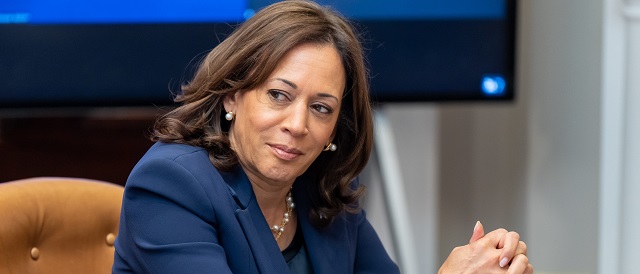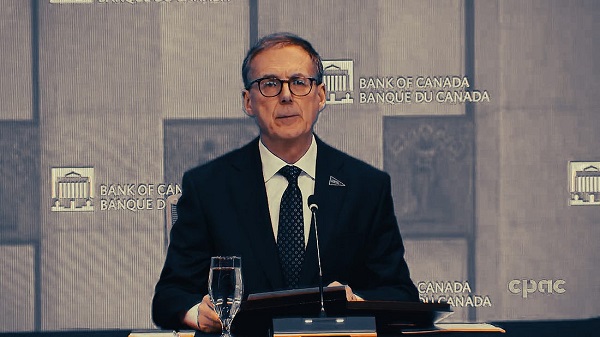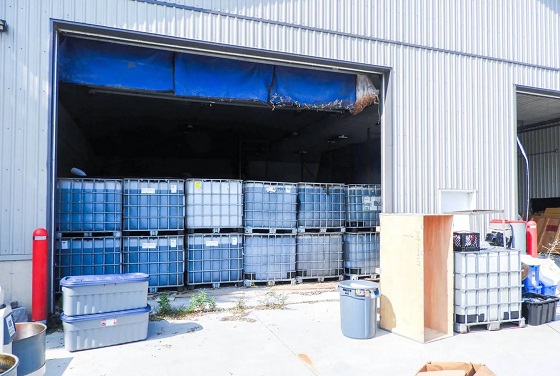Energy
Opinion: A Kamala Harris Presidency Is The Stuff Of Nightmares

 From the Daily Caller News Foundation
From the Daily Caller News Foundation
By PETER MURPHY
Vice President Kamala Harris is one election away from winning the White House and accelerating America’s climate hysteria that is already well underway thanks to the outgoing President Joe Biden.
“There is no question I’m in favor of banning fracking,” then-Sen. Harris said during a CNN-sponsored town hall back in 2019, during her ill-fated run for president.
That same year, she threw her support behind the Green New Deal, proposed by New York Democratic Rep. Alexandria Ocasio-Cortez and Massachusetts Democratic Sen. Ed Markey. That is a plan that would spend trillions of taxpayer dollars to “transition” America from oil, gas and coal sources to so-called wind, solar and batteries–or, rather, to subjugate the nation to an all-powerful green state under the command of the federal government.
Harris later teamed with AOC to introduce the Climate Equity Act, which was a confusing, word-salad of a bill to address climate “injustice” in “front-line communities” using the familiar means of creating a massive new federal bureaucracy.
During Harris’ short-lived campaign for president, which crashed and burned months before the 2020 caucus and primary votes, she called for a climate pollution fee that would “make polluters pay for emitting greenhouse gases into our atmosphere.” Typical of so many climate falsehoods, Harris conflates carbon emissions with “pollution.”
In his letter to the nation last Sunday announcing he was dropping out of the presidential race, President Joe Biden boasted that he had overseen passage of the “most significant climate legislation in the history of the world” — an apparent reference to his misnamed Inflation Reduction Act. This “significant” legislation included hundreds of millions of dollars of corporate welfare for companies to build wind turbines, solar panels and electric vehicles and other climate-related projects.
Because, after all, the U.S. is “the world’s largest historical contributor to climate change – still the second largest today after China’ said a story posted by the climate-rabid media outlet, Yahoo News. Expect a President Harris to double down on such unscientific drivel.
In a modern historical anomaly, Harris is poised to become a major party’s presidential nominee without a single caucus or primary vote, which is a throwback to the old days of party bosses and smoke-filled rooms at convention time.
Still, Harris is among the most privileged Americans to ever become a presidential nominee of a major political party, though not without difficulties. Her parents were both college professors, but they divorced when she was young. Following law school, Harris became a prosecutor in the Alameda County attorney’s office. With the assistance of her politically powerful mentor and very close friend, the charismatic California State Assembly Speaker Willie Brown, she was appointed to several public jobs, elected as San Francisco district attorney, attorney general of California, and then U.S. senator.
After becoming a senator, Harris began running for president. Her 2020 presidential campaign helped reveal her radical positions on climate and a host of other issues and enabled her to get on the short list of vice presidential choices.
With Biden’s mental and physical decline now so obvious, Harris has become the beneficiary of a ninth-inning political coup d’état against the president, engineered by Democratic Party leaders, who pressured him to drop his re-election campaign on the eve of the party’s nominating convention.
Harris is no Scranton-born, working-class pretender, who rode Amtrak. She does not have any record of political centrism, moderation or bipartisanship, which Biden practiced off and on throughout his career and helped him win the presidency in 2020.
By contrast, Harris is a product of the one-party state of California, who supported destructive policies on climate change, energy, crime and welfare that helped spark in California high fuel costs, declining living standards and a population exodus.
The election of 2024 will have climate change on the ballot, as did the 2020 election. The big difference this time is that Americans have experienced more than ever the inflationary and detrimental effects of climate policies with no impact on climate change.
And, it is not a supposed moderate candidate making the climate sale to the public, but a true believer, Kamala Harris.
Peter Murphy is Senior Fellow at the Committee For A Constructive Tomorrow (CFACT), a Washington D.C.-based organization in support of free market, technological solutions to energy and environmental challenges.
Alberta
Nobel Prize nods to Alberta innovation in carbon capture

From the Canadian Energy Centre
‘We are excited to bring this made-in-Canada innovation to the world’
To the naked eye, it looks about as exciting as baking soda or table salt.
But to the scientists in the University of Calgary chemistry lab who have spent more than a decade working on it, this white powder is nothing short of amazing.
That’s because the material they invented is garnering global attention as a new solution to help address climate change.
Known as Calgary Framework-20 (CALF-20 for short), it has “an exceptional capacity to absorb carbon dioxide” and was recognized in connection with the 2025 Nobel Prize in Chemistry.
“It’s basically a molecular sponge that can adsorb CO2 very efficiently,” said Dr. George Shimizu, a UCalgary chemistry professor who leads the research group that first developed CALF-20 in 2013.
The team has been refining its effectiveness ever since.
“CALF-20 is a very exciting compound to work on because it has been a great example of translating basic science into something that works to solve a problem in the real world,” Shimizu said.
Advancing CCS
Carbon capture and storage (CCS) is not a new science in Alberta. Since 2015, operating projects in the province have removed 15 million tonnes of CO2 that would have otherwise been emitted to the atmosphere.
Alberta has nearly 60 proposed facilities for new CCS networks including the Pathways oil sands project, according to the Regina-based International CCS Knowledge Centre.
This year’s Nobel Prize in Chemistry went to three of Shimizu’s colleagues in Japan, Australia and the United States, for developing the earliest versions of materials like CALF-20 between 1989 and 2003.
Custom-built molecules
CALF-20 is in a class called metal-organic frameworks (MOFs) — custom-built molecules that are particularly good at capturing and storing specific substances.
MOFs are leading to new technologies for harvesting water from air in the desert, storing toxic gases, and capturing CO2 from industrial exhaust or directly from the atmosphere.
CALF-20 is one of the few MOF compounds that has advanced to commercial use.
“There has been so much discussion about all the possible uses of MOFs, but there has been a lot of hype versus reality, and CALF-20 is the first to be proven stable and effective enough to be used at an industrial scale,” Shimizu said.
It has been licensed to companies capturing carbon across a range of industries, with the raw material now being produced by the tonne by chemical giant BASF.
Carbon capture filter gigafactory
Svante Inc. has demonstrated its CALF-20-based carbon capture system at a cement plant in British Columbia.
The company recently opened a “gigafactory” in Burnaby equipped to manufacture enough carbon capture and removal filters for up to 10 million tonnes of CO2 annually, equivalent to the emissions of more than 2.3 million cars.
The filters are designed to trap CO2 directly from industrial emissions and the atmosphere, the company says.
Svante chief operating officer Richard Laliberté called the Nobel committee’s recognition “a profound validation” for the entire field of carbon capture and removal.
CALF-20 expansion
Meanwhile, one of Shimizu’s former PhD students helped launch a spinoff company, Existent Sorbents, to further expand the applications of CALF-20.
Existent is working with oil sands producers, a major steel factory and a U.S.-based firm capturing emissions from other point sources, said CEO Adrien Côté.
“The first users of CALF-20 are leaders who took the risk of introducing new technology to industries that are shrewd about their top and bottom lines,” Côté said.
“It has been a long journey, but we are at the point where CALF-20 has proven to be resilient and able to survive in harsh real-world conditions, and we are excited to bring this made-in-Canada innovation to the world.”
Business
Bill Gates walks away from the climate cult

Billionaire Bill Gates — long one of the loudest voices warning of climate catastrophe — now says the world has bigger problems to worry about. In a 17-page memo released Tuesday, the Microsoft co-founder called for a “strategic pivot” away from the obsessive focus on reducing global temperatures, urging leaders instead to prioritize fighting poverty and eradicating disease in the developing world. “Climate change is a serious problem, but it’s not the end of humanity,” Gates wrote.
Gates, 70, argued that global leaders have lost perspective by treating climate change as an existential crisis while millions continue to suffer from preventable diseases like malaria. “If I had to choose between eradicating malaria and preventing a tenth of a degree of warming, I’d let the temperature go up 0.1 degree,” he told reporters ahead of next month’s U.N. climate conference in Brazil. “People don’t understand the suffering that exists today.”
For decades, Gates has positioned himself as a leading advocate for global climate initiatives, investing billions in green energy projects and warning of the dangers of rising emissions. Yet his latest comments mark a striking reversal — and a rare admission that the world’s climate panic may have gone too far. “If you think climate is not important, you won’t agree with the memo,” Gates told journalists. “If you think climate is the only cause and apocalyptic, you won’t agree with the memo. It’s a pragmatic view from someone trying to maximize the money and innovation that helps poor countries.”
The billionaire’s change in tone is sure to raise eyebrows ahead of the U.N. conference, where climate activists plan to push for new emissions targets and wealth transfers from developed nations. Critics have long accused Gates and other elites of hypocrisy for lecturing the public about fossil fuels while traveling the globe on private jets. Now, Gates himself appears to be distancing from the doomsday rhetoric he once helped spread, effectively admitting that humanity faces more immediate moral imperatives than the weather.
(AP Photo/Alex Brandon)
Stunning Climate Change pivot from Bill Gates. Poverty and disease should be top concern.
-

 National21 hours ago
National21 hours agoCanadian MPs order ethics investigation into Mark Carney’s corporate interests
-

 Business2 days ago
Business2 days agoCanada has given $109 million to Communist China for ‘sustainable development’ since 2015
-

 Banks1 day ago
Banks1 day agoBank of Canada Cuts Rates to 2.25%, Warns of Structural Economic Damage
-

 Business1 day ago
Business1 day agoFord’s Liquor War Trades Economic Freedom For Political Theatre
-

 Opinion2 days ago
Opinion2 days agoBritish Columbians protest Trump while Eby brings their province to its knees
-

 International2 days ago
International2 days agoStrongest hurricane in 174 years makes landfall in Jamaica
-

 Bruce Dowbiggin8 hours ago
Bruce Dowbiggin8 hours agoGet Ready: Your House May Not Be Yours Much Longer
-

 Business1 day ago
Business1 day agoBill Gates walks away from the climate cult






